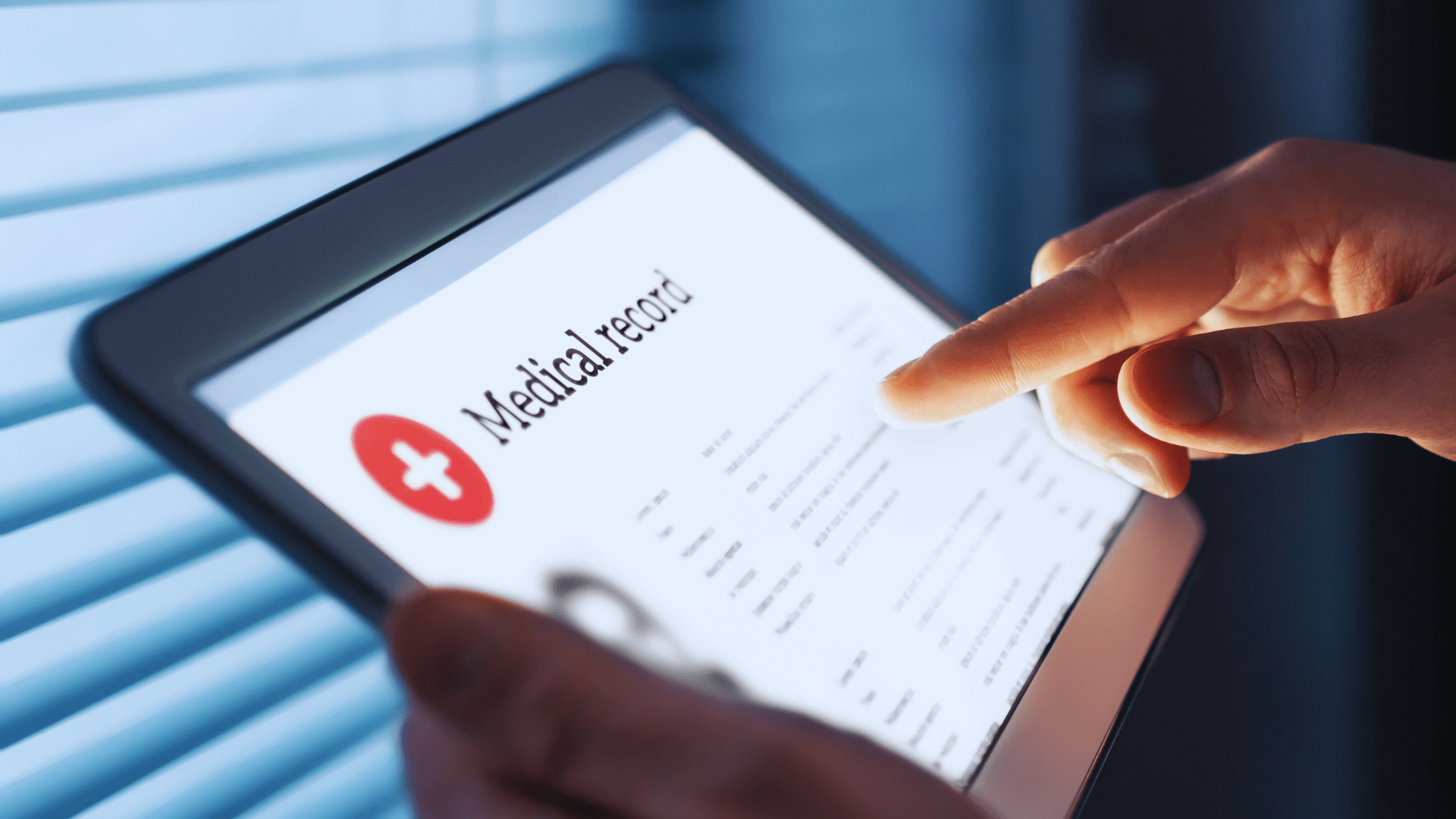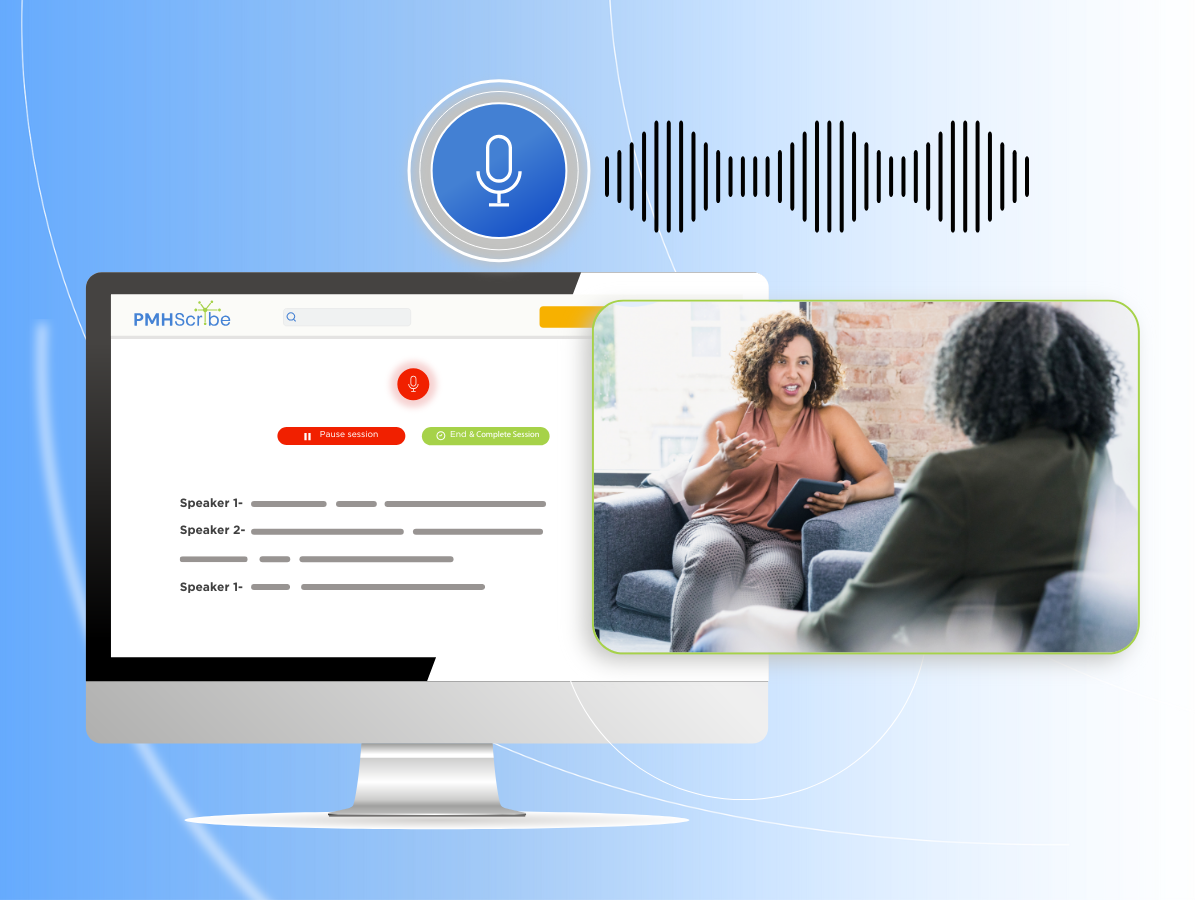Patients today have more rights than ever before to access their medical information quickly and without unnecessary barriers. For mental health providers, this means ensuring that clinical notes, diagnoses, medication lists, and test results are completed promptly and made available to patients when requested. Two major federal frameworks govern this:
- The 21st Century Cures Act (information blocking rules)
- The HIPAA Right of Access rule
Together, these create a legal expectation for timely, transparent, and accurate documentation, while still allowing clinicians to protect sensitive psychotherapy notes.
PMHScribe is built to support these requirements by helping clinicians complete documentation quickly, accurately, and in a compliant format.
Patients Have a Legal Right to Timely Access to Their Records
Under HIPAA, patients have the right to receive copies of their health records within 30 days of a request. This includes:
- Progress notes
- Diagnoses
- Medications
- Treatment plans
- Test and lab results
- Billing information
- Any content within the designated record set
Failure to provide records within this timeframe is a HIPAA violation.
The Office for Civil Rights (OCR) has made this a major enforcement priority through the HIPAA Right of Access Initiative, and many clinics, including mental health practices, have been fined. Recent publicly reported examples include:
- A counseling practice fined $15,000 for failing to provide records promptly
- A psychiatric clinic fined $10,000 for delayed patient access
- A physician group fined $160,000 for repeated delays
These cases show that even small practices can face real financial penalties when they fail to release patient records in a timely manner.
The 21st Century Cures Act: Information Blocking and Provider Accountability
The 21st Century Cures Act requires healthcare providers to avoid “information blocking,” which means any action that unreasonably prevents or delays access to a patient’s electronic health information (EHI).
This includes:
- Not completing notes for long periods
- Refusing to share clinical information that the patient is legally entitled to
- Creating obstacles that slow or discourage access
While the Cures Act’s large civil monetary penalties primarily target EHR vendors and health information networks, individual providers are not exempt from accountability.
Under newly finalized federal regulations, providers who engage in information blocking may face:
- Loss of “Meaningful EHR User” status
- Reductions in Medicare payments
- A zero score in relevant quality or interoperability programs
- Exclusion from certain Medicare programs
- Public reporting of violations
These are not hypothetical; HHS has announced that enforcement is expanding, and provider penalties are now activated in federal regulations.
Psychotherapy Notes Remain Special and Should Be Kept Separate
Despite these access requirements, psychotherapy notes have special protection under HIPAA. As long as they are:
- Documented separately
- Contain only the clinician’s personal counseling impressions
- Do not include diagnoses, treatment plans, modalities, times, or test results
They do not need to be released to patients and are exempt from both HIPAA Right of Access and Cures Act information blocking.
The safest and most compliant workflow for mental health clinicians is:
- A clinical note (part of the medical record and releasable)
- A separate psychotherapy note (private and excluded from automatic release)
PMHScribe automatically supports this distinction by enabling clinicians to generate two different types of documentation from the same session.
How PMHScribe Helps You Stay Compliant
1. Faster Documentation = Lower Access Risk
Most HIPAA right-of-access violations happen because providers fall behind on notes. PMHScribe’s real-time speech-to-text helps clinicians close notes quickly so patients can receive their information without delays.
2. Clear Separation of Clinical and Psychotherapy Notes
PMHScribe organizes content correctly, ensuring that:
- Clinical notes remain clear, structured, and ready for release
- Psychotherapy process notes are kept private and separate
This supports compliance with both HIPAA and the Cures Act.
3. Accurate, Complete, Structured Clinical Information
PMHScribe’s psychiatric-specific templates help capture:
- Diagnoses
- Medications and changes
- Test results
- Treatment plans
- Safety assessments
- Session times and modalities
This reduces the risk of incomplete or unclear documentation, which could otherwise cause delays or inadvertent information blocking.
Key Takeaways for Mental Health Providers
- Patients must receive access to their medical records promptly. Delays can result in HIPAA fines, even for small practices.
- Information blocking rules under the Cures Act now apply to providers, with new federal disincentives and regulatory consequences.
- Psychotherapy notes receive special protection, but only when kept separate and documented correctly.
- PMHScribe helps clinicians stay compliant by enabling fast, accurate documentation and maintaining clear distinctions between clinical and psychotherapy notes.
Disclaimer: This content is for informational purposes only and is not a substitute for legal advice. Consult your practice’s legal or compliance advisor for guidance on HIPAA, the 21st Century Cures Act, or information-blocking obligations.




